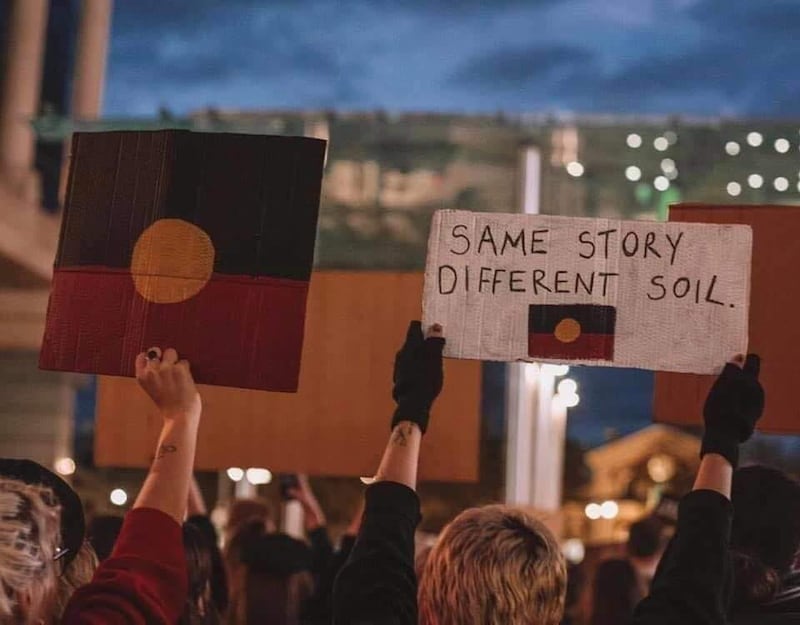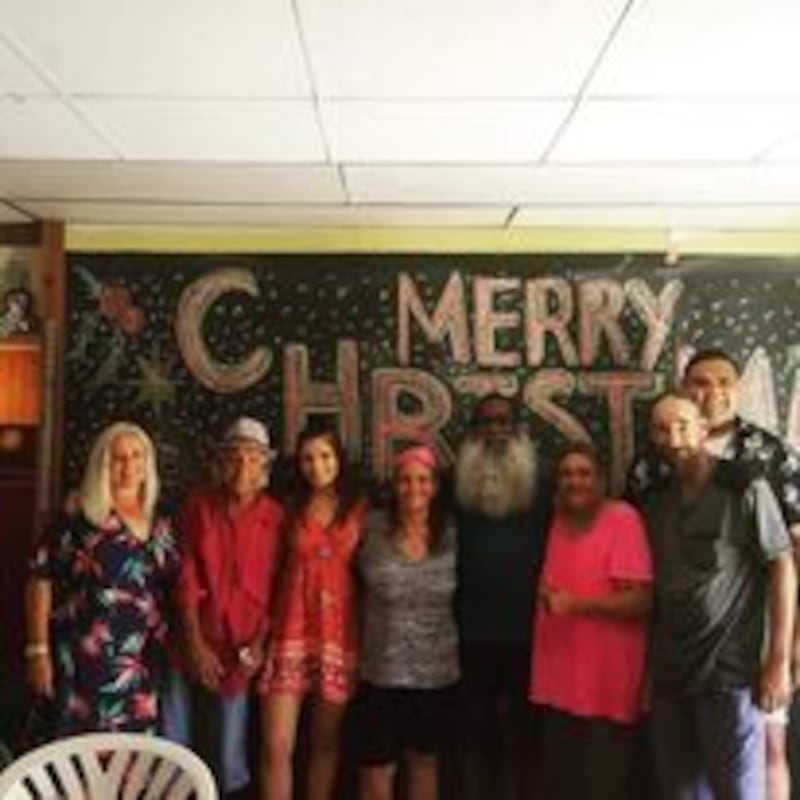#Footage credit to NITV
Australia Day (January 26) marks the national day for Aotearoa's neighbour across the ditch but for the Aboriginal peoples, it’s an annual reminder of the impacts of colonisation.
Keenan Smith's ancestral home is the Great Australian Bight in South Australia and he belongs to the Kokatha, Wirangu, and Mirning people. He calls the national day Invasion Day. He chairs the Wirangu Aboriginal Corporation, was the South Australia NAIDOC LGBTQI+ Person of the Year 2021, and is an environmental sciences student at Flinders University.
He calls the national day Invasion Day.
Australia Day can be dangerous for youth and protestors like Smith. He explains that the first time he attended a protest in Melbourne with his aunt and uncle on Australia Day and got dressed up in his Aboriginal flag t-shirt to represent his mob (people), his uncle wouldn't let him leave his side to find his friends for fear of being racially profiled.
"You’re wearing an aboriginal flag t-shirt and trust me, there are a lot of racists out there ... like neo-Nazis and the other white supremacy groups," he says.

Abolish Australia Day
Since 1994, the country has marked Australia Day to celebrate the arrival of the first British convict fleet in Australia. For Smith, it’s a date that represents pain, heartache, and suffering of his people and he wants to see the national day abolished.
"When I look at it, it’s like how can you promote harmony by celebrating the assertion of one sovereignty over another. Like how does it work?"
"I think we need to address the wrongs in the past if we’re actually ever going to come together and celebrate Australia as a whole. We are not at that point where we’re gonna kumbaya and stuff like that."
"As a First Nations person that’s from and living in South Australia, my reason for labeling January 26 as ‘Invasion Day’, is because South Australia was forcibly taken from First Nations people of this state, even though laws of the British at that time said otherwise.
Unlike most other states and territories, South Australia was a planned free settlement, with the passing of the South Australia Act in 1834. The establishment of South Australia was guided by Letters Patent from King William IV, which included a provision that no actions could be undertaken that would affect the rights of any Aboriginal natives of the province or their land
"So despite this being law by the colonial government, this hasn’t been fulfilled."
He says this has happened both historically and today.
He says in May 1849 near the township of Elliston, a number of First Nations people were herded up and shot or forced to jump off the cliffs to their deaths. This impacted Wirangu, Kokatha, Nauo and Barngarla peoples.
"There is now a memorial site near the location of the Waterloo Bay massacre to remember our people who were murdered."
He says that on this land now in Ceduna, Koonibba, and surrounding areas, there is a Covid-19 crisis and most infections are Aboriginal people.
"In my opinion, the support from our state government and peak health body has been horrid."
Aboriginal history ignored
Smith says he was lucky to learn about his history at school, an opportunity not available to all Aboriginal students.
"We didn’t do Aboriginal studies earlier but in Year 12 because there were about 20 of us, we could actually put in a petition to say we want that because we had the numbers."
"The education system back when I was in high school wasn’t teaching that kind of stuff so, as kids, you go through the system and it’s not of your own ignorance, it’s the ignorance of the white educators in the education system."
NAIDOC week a celebration for Aborigines
If there is a day that Smith celebrates, it’s the National Aborigines and Islanders Day Observance Committee (NAIDOC), which isn’t recognised as a public holiday.
"When it comes to NAIDOC week, the community gets together, we all know one another, it’s like a big catch up. Back in Port Lincoln, we do a big massive cookout and they often have wombat cooking and kangaroo and damper."

Smith also shared the stories of his ancestors last week through an opinion piece he wrote for NITV. Click here to view.


